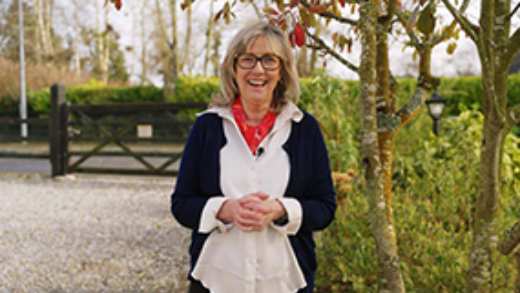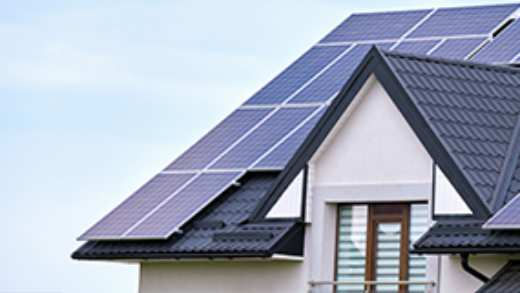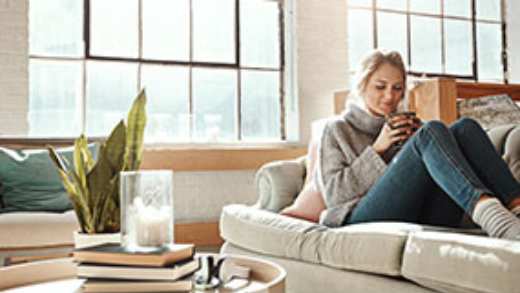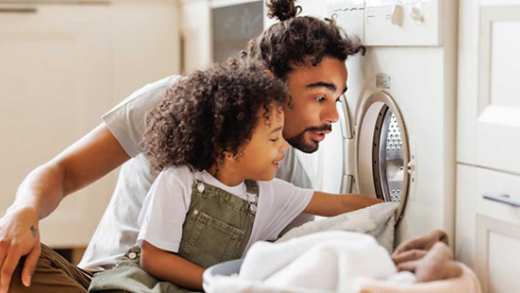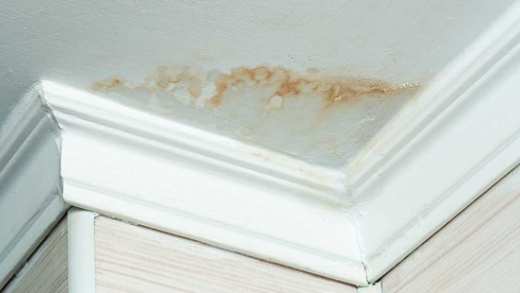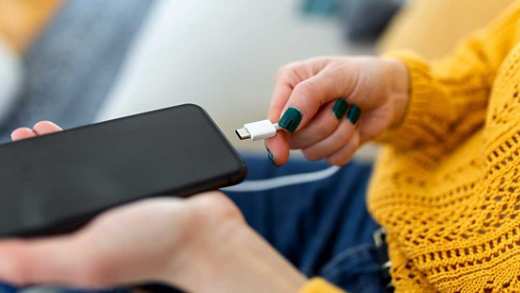As the home of Irish football and rugby, Aviva Stadium has hosted its fair share of moments to go down in history – and as a proud sponsor of the stadium, we know the importance of doing our bit to build towards a brighter future, too.
We chatted to Aidan Byrne, Sustainability Manager at Aviva Stadium, who explained how they’ve got what it takes to make a difference, as well as offering some simple tips and tricks to make your own home a greener place.
Biodiversity
Transcript for video Aviva Stadium Sustainability - Biodiversity
Biodiversity:
00:00:03:00 - 00:00:06:12
Kathy: Aviva Stadium has hosted some of
the biggest days in Irish sport,
00:00:06:12 - 00:00:09:15
along with many memorable concerts
and much more.
00:00:09:15 - 00:00:13:20
But a lot goes on here on a day to day
basis also, including a massive
00:00:13:20 - 00:00:18:24
undertaking to ensure this amazing stadium
is run with sustainability to the fore.
00:00:18:24 - 00:00:22:08
I'm Kathy Kavanagh and today
I'll be talking to Aviva Stadium
00:00:22:08 - 00:00:25:23
Sustainability Manager Aidan Byrne,
who'll talk us through
00:00:25:23 - 00:00:29:13
how they've got what it takes
to make this place even greener.
00:00:29:20 - 00:00:33:08
Aidan, tell us about some of the key areas
the stadium focuses on
00:00:33:08 - 00:00:35:04
from a sustainability perspective.
00:00:35:04 - 00:00:38:07
Aidan: Our current sustainability programme
focuses on three core areas
00:00:38:13 - 00:00:42:01
water stewardship, waste management
and recycling and biodiversity protection.
00:00:42:05 - 00:00:45:24
Kathy: Some people might be surprised
that Aviva Stadium is the home
00:00:45:24 - 00:00:47:14
of some of Irish native species.
00:00:47:14 - 00:00:49:00
Can you tell us a little bit about that?
00:00:49:00 - 00:00:51:17
Aidan: As a business supporter of
the All-Ireland Pollinator Plan
00:00:51:17 - 00:00:53:10
our Biodiversity Protection Programme
00:00:53:10 - 00:00:56:00
has a keen focus on supporting local pollinators.
00:00:56:05 - 00:00:57:22
With that,
we actually teamed up with Aviva
00:00:57:22 - 00:01:01:04
to install a six-foot long bug hotel
over in the Aviva Home Turf garden.
00:01:01:21 - 00:01:05:01
Bug hotels are a really great resource
to provide shelter and food
00:01:05:01 - 00:01:09:16
for local insects and there’s over 11,000
different species in Ireland alone.
00:01:09:24 - 00:01:12:14
And these little creatures,
they play such a vital role
00:01:12:14 - 00:01:14:23
in our ecosystem
by pollinating all our plants.
00:01:14:23 - 00:01:17:22
So we're very happy to play our part
in the conservation process.
00:01:17:22 - 00:01:19:04
Kathy: Do you have any tips
00:01:19:04 - 00:01:22:17
for people in their homes
as to how they can support biodiversity?
00:01:23:00 - 00:01:25:20
Aidan: When it comes to the garden,
it's best to remember
00:01:25:20 - 00:01:29:11
don't mow, let it grow. By reducing
the amount of times you mow your lawn
00:01:29:11 - 00:01:32:21
to even once a month, it'll allow
native wildflowers like dandelion,
00:01:32:21 - 00:01:35:21
clover and birdsfoot trefoil
to naturally return over time.
00:01:36:03 - 00:01:37:23
So by reducing the amount you mow your lawn,
00:01:37:23 - 00:01:40:23
to even once a month will help them
naturally return one pocket at a time.
00:01:41:05 - 00:01:44:06
You can also build your own simple bug
hotel at home using materials
00:01:44:06 - 00:01:45:12
you find around the house,
00:01:45:12 - 00:01:49:08
And this will encourage beneficial insects
like solitary bees and ladybirds
00:01:49:08 - 00:01:50:05
back into your garden.
00:01:50:05 - 00:01:53:05
You can watch how to build one
step by step at Aviva.ie
00:01:53:14 - 00:01:54:23
Kathy: Oh I love that, might
do it with the kids.
00:01:54:23 - 00:01:55:16
Aidan: It’s great fun.
Water stewardship
Transcript for video Aviva Stadium Sustainability - Water Stewardship
Water stewardship:
00:00:02:15 - 00:00:03:24
Kathy: Can you tell me a little bit about
00:00:03:24 - 00:00:07:22
what happens behind the scenes in relation
to water stewardship or conservation?
00:00:08:00 - 00:00:10:07
Aidan: Water doesn't get the same attention
as energy management
00:00:10:07 - 00:00:11:13
because it's a lot cheaper than gas,
00:00:11:13 - 00:00:13:14
electricity and oil,
but it's just as important.
00:00:13:14 - 00:00:16:23
So to ensure that we manage this
precious resource in a responsible manner,
00:00:17:02 - 00:00:19:02
we have to make sure that we measure
how much we're using,
00:00:19:03 - 00:00:21:01
where we take it from,
what we do with it
00:00:21:01 - 00:00:24:00
and ultimately how much we're sending back
for treatment in the local plant.
00:00:24:10 - 00:00:25:01
It's also really
00:00:25:01 - 00:00:26:21
important for us to understand
what the impact
00:00:26:21 - 00:00:29:22
our water use is having on the local
environment and the people around us.
00:00:29:22 - 00:00:34:16
Our current water treatment system follows
the reduce, replace and reuse approach.
00:00:34:16 - 00:00:36:03
So, in terms of reducing,
00:00:36:03 - 00:00:39:00
that's all about using more efficient
equipment and processes.
00:00:39:03 - 00:00:42:15
Replacing is about substituting
drinking water with other sources,
00:00:42:15 - 00:00:46:07
like the way we harvest rain off the roof
for our pitch irrigation system.
00:00:46:07 - 00:00:49:17
Reuse then is more about trying
to recycle grey water,
00:00:49:17 - 00:00:51:12
which is something
we're looking at in the future.
00:00:51:12 - 00:00:52:13
Kathy: Can you tell us a little bit
00:00:52:13 - 00:00:55:23
about how people could be more mindful
about water conservation at home?
00:00:55:23 - 00:00:58:24
Aidan: The reduce, replace, reuse approach
that we use here at the stadium
00:00:58:24 - 00:01:00:16
can easily be adopted at home.
00:01:00:16 - 00:01:03:15
So for reducing, you can look at maybe
installing more water
00:01:03:15 - 00:01:05:04
efficient cisterns in your toilets.
00:01:05:06 - 00:01:07:20
In terms of replacing, what I would advise
00:01:07:20 - 00:01:10:23
people to do is look for
items that aren’t working correctly.
00:01:10:23 - 00:01:13:20
So dripping showerheads,
taps, leaky pipes.
00:01:14:00 - 00:01:17:03
It might just seem like a few drips
of water, but it all adds up over time.
00:01:17:04 - 00:01:18:15
And also by replacing these items,
00:01:18:15 - 00:01:21:03
you might save yourself a bit of money
as well as stress.
00:01:21:09 - 00:01:22:21
Kathy: Some great tips for everybody there.
00:01:22:21 - 00:01:25:05
I have a leaky tap at home,
so I will check that out.
00:01:25:16 - 00:01:27:03
Aidan: So in terms of reusing.
00:01:27:03 - 00:01:29:07
What's important
is to make the most out of the water
00:01:29:07 - 00:01:30:09
that you're already using at home.
00:01:30:09 - 00:01:32:21
So when you're washing your vegetables
or boiling pasta,
00:01:33:03 - 00:01:35:01
instead of letting all that water
just disappear down
00:01:35:01 - 00:01:37:14
the drain, never to be used again,
you can actually use that
00:01:37:14 - 00:01:38:11
to water your plants.
00:01:38:11 - 00:01:39:15
So that's really useful,
00:01:39:15 - 00:01:41:19
particularly in the summer
when there's a shortage of water.
00:01:41:19 - 00:01:42:22
Kathy: Such a good tip.
Waste management
Transcript for video Aviva Stadium Sustainability - Waste Management
Waste Management:
00:00:04:22 - 00:00:09:10
Kathy: So, on match day there’s around
50,000 people plus in this stadium.
00:00:09:10 - 00:00:13:06
I'd imagine that makes waste management
quite a complex issue
00:00:13:06 - 00:00:14:16
for the stadium to manage.
00:00:14:16 - 00:00:16:02
Can you tell us a little bit about that?
00:00:16:02 - 00:00:16:12
Aidan: Sure.
00:00:16:12 - 00:00:18:17
Yeah, it is definitely a complex process,
00:00:18:17 - 00:00:22:12
but we do have a structured system
in place that focuses on waste generation,
00:00:22:20 - 00:00:26:03
how we process that on site before
we send it away to our waste management
00:00:26:03 - 00:00:27:13
provider for further processing.
00:00:27:13 - 00:00:29:15
It follows the reduce, reuse,
recycle approach.
00:00:29:16 - 00:00:32:18
This has actually led us
to remove single-use plastics from site.
00:00:32:18 - 00:00:36:00
So, we implemented a reusable cup
to get rid of the single-use
00:00:36:00 - 00:00:37:18
PET plastic pint glasses.
00:00:37:18 - 00:00:40:08
Since we put this in, we've saved over
one and a half million cups
00:00:40:08 - 00:00:42:06
and that equates
to about ten tonnes of waste.
00:00:42:11 - 00:00:46:19
We also tried to support Ireland’s transition
away from the linear economy approach.
00:00:46:19 - 00:00:48:24
So that's kind of where you take your waste
and dispose
00:00:48:24 - 00:00:50:19
to kind of promote
the new circular economy.
00:00:50:19 - 00:00:54:24
So make, take, recycle. A good example of
this is our new Gumdrop bins,
00:00:54:24 - 00:00:57:21
which takes waste chewing gum,
which then gets reprocessed
00:00:57:21 - 00:01:00:00
and turned into a new polymer
called gum-tec,
00:01:00:00 - 00:01:03:03
which then goes on to make new Gumdrop
bins. So the cycle continues.
00:01:03:09 - 00:01:06:04
Kathy: Can you tell us a little bit
about how people could practice
00:01:06:04 - 00:01:07:17
positive waste management at home?
00:01:07:17 - 00:01:09:13
Aidan: At this stage,
everyone knows the importance
00:01:09:13 - 00:01:11:21
and benefits of recycling,
but not everyone knows
00:01:11:21 - 00:01:14:14
that you can only recycle items
if they are clean, dry and loose.
00:01:15:01 - 00:01:18:14
So REPAK would report that 30%
of what goes into your recycling bin
00:01:18:14 - 00:01:20:03
every year is contaminated.
00:01:20:03 - 00:01:23:04
So just make sure to check all your food
packaging before you pop it in the bin.
00:01:23:12 - 00:01:26:23
There's also really great apps out there
to avoid food waste, such as
00:01:26:23 - 00:01:27:18
Too Good To Go.
00:01:27:18 - 00:01:30:03
Basically, it's a great resource
which connects people
00:01:30:08 - 00:01:33:08
with shops and restaurants
that have surplus food at reduced cost.
00:01:33:14 - 00:01:36:15
Aviva also have a really good charity
partner called FoodCloud,
00:01:36:24 - 00:01:39:06
which connects businesses
that have surplus food
00:01:39:06 - 00:01:41:18
with other charities and community groups
that really need it.
00:01:41:18 - 00:01:42:19
So it would be great
00:01:42:19 - 00:01:45:15
if people would check out and see
if they can volunteer at their local hub.
00:01:46:01 - 00:01:49:08
Kathy: I hope you've enjoyed this little
look behind the scenes at what happens at
00:01:49:08 - 00:01:53:16
Aviva Stadium to put sustainability
at the heart of this amazing place
00:01:53:16 - 00:01:55:16
and that you've taken
a little bit of inspiration
00:01:55:16 - 00:01:59:15
as to what you can do too, because
remember, whether it's in your own home
00:01:59:21 - 00:02:02:19
or the home of Irish rugby,
we've all got what it takes
00:02:02:19 - 00:02:04:00
to make a difference.
Now you’re feeling inspired, why not get the whole family involved? Build your own bug hotel with our step-by-step instructions to make a home away from home for all sorts of creatures and critters!
At Aviva, we understand that being more sustainable is better for our homes and looking after Irish homes is what we’re all about. That’s why we offer 20% off when you buy home insurance online. Get your quote today.1


